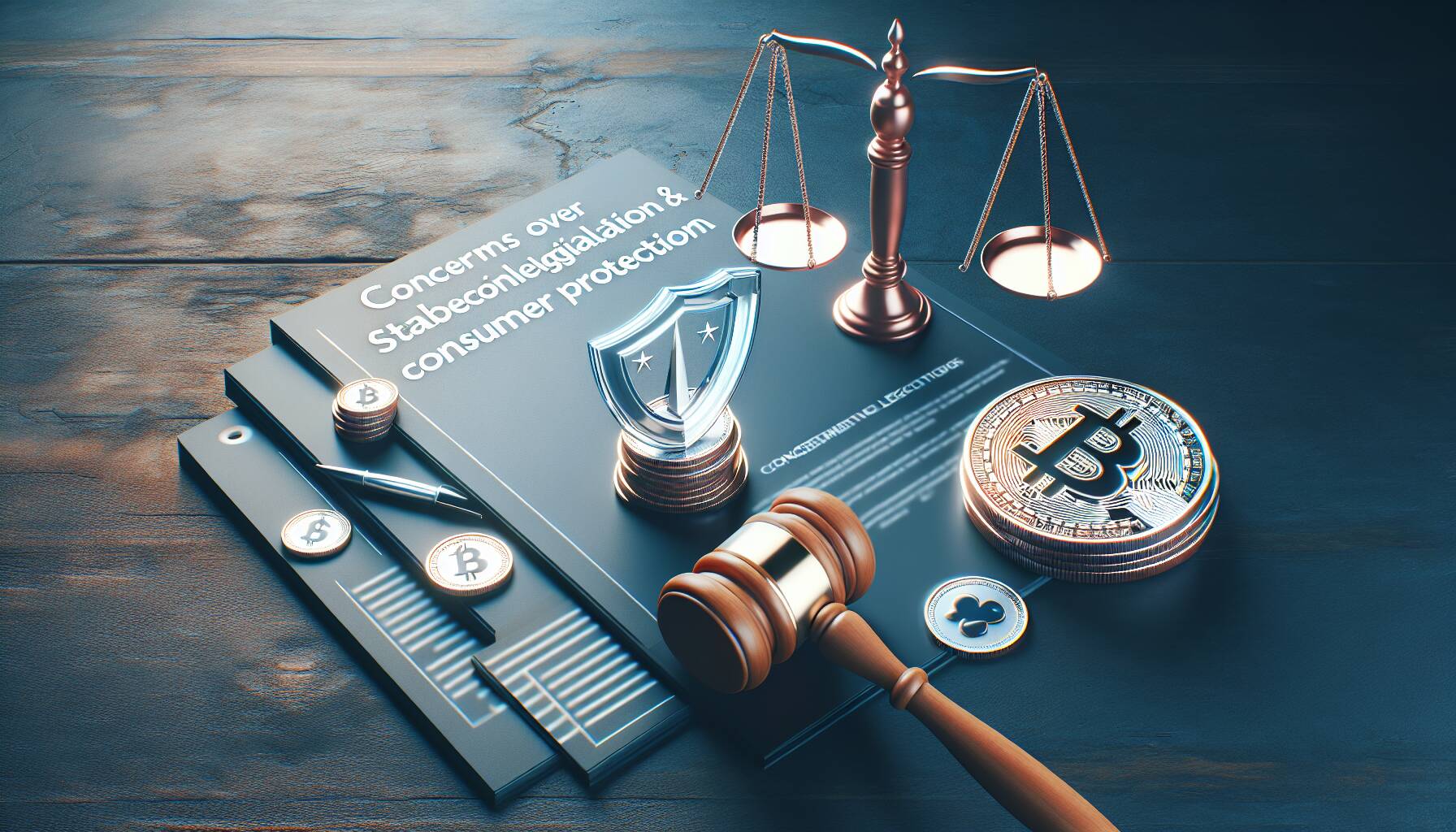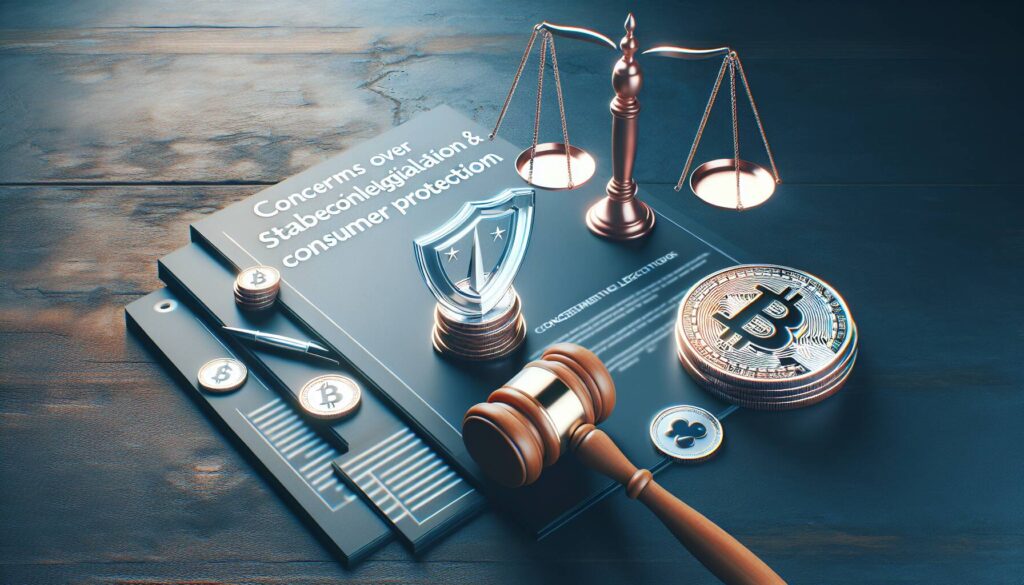New York Attorney General Letitia James has raised significant concerns regarding the recently passed U.S. Senate stablecoin bill, known as the Guiding and Establishing National Innovation for U.S. Stablecoins of 2025 (GENIUS) Act. In an emphatic letter addressed to Congress on Monday, James cautioned that the current version of the legislation lacks essential protections for the American public, urging lawmakers to pause and revise the measures to foster innovation while safeguarding the banking system.
This is not the first time James has voiced her apprehensions regarding digital asset legislation. Earlier this year, she highlighted the need for robust regulations to manage the rapid expansion of cryptocurrencies, advocating for fundamental principles that include emphasizing the importance of domestic stablecoin operations. Her latest letter continues this theme, calling for stricter oversight of stablecoin issuers, suggesting they be regulated similarly to banks, and advocating for the removal of non-bank issuers from the framework.
James specifically pointed to potential risks associated with foreign-based stablecoin issuers, highlighting what she describes as the “Tether loophole.” She argued that maintaining U.S. oversight over dollar-pegged stablecoin issuers is crucial, especially as these assets continue to gain traction and their influence on U.S. Treasury markets grows. Furthermore, she proposed that stablecoin issuers should be required to implement digital identity credentials for holders to enhance compliance with anti-fraud laws and bolster national security.
“The U.S. must maintain control over dollar-pegged stablecoin issuers — especially as stablecoin issuance grows,” James emphasized in her letter.
The GENIUS Act has already been passed by the Senate, while the House of Representatives currently deliberates its own version, the STABLE Act. The interplay between these two pieces of legislation highlights the ongoing debate within Congress regarding the future of stablecoin regulation and its implications for the digital asset landscape.

Concerns Over the GENIUS Act and Stablecoin Regulation
The recent warnings from Attorney General Letitia James regarding the GENIUS Act raise significant concerns about the future of stablecoin legislation and its implications for American consumers and the financial system.
- Insufficient Guardrails:
- James emphasizes that the current GENIUS Act lacks essential protections for the American public.
- The absence of regulatory measures could result in unchecked growth of digital assets.
- Call for Caution:
- James urges Congress to slow down and draft more comprehensive legislation.
- Legislation should foster innovation while safeguarding the banking system.
- Prior Warnings:
- This is not the first alert from James; she has previously expressed concerns in letters regarding digital asset legislation.
- She insists on adhering to “common sense principles” to protect investors and national security.
- Regulation of Stablecoin Issuers:
- James proposes regulating stablecoin issuers similarly to banks.
- She highlights the need to eliminate non-bank issuers to enhance regulatory oversight.
- U.S. Domestication:
- Stablecoin issuers should be required to operate from within the U.S. to prevent foreign entities from exploiting the U.S. financial system.
- This will help maintain control over dollar-pegged stablecoin issuers and their impact on U.S. Treasury markets.
- Digital Identity Requirements:
- James suggests the necessity of digital identity credentials for stablecoin holders.
- This measure would aid law enforcement in combating illicit activities and ensuring compliance with federal laws.
- Legislative Uncertainty:
- The House of Representatives has a competing stablecoin bill (the STABLE Act) which differs from the Senate’s version.
- The process is ongoing, with potential implications for how stablecoins will be regulated in the future.
“The U.S. must maintain control over dollar-pegged stablecoin issuers… ” – Letitia James
Comparative Analysis of the GENIUS Act and Emerging Legislation Surrounding Stablecoins
The recent discourse surrounding the GENIUS Act highlights significant tensions within the stablecoin regulatory landscape, particularly as voiced by New York Attorney General Letitia James. Her critical assessment of the Senate’s stablecoin bill underscores potential vulnerabilities related to consumer protection and national security, setting the stage for a rich comparative analysis with similar legislative efforts.
Competitive Advantages: One notable distinction between the GENIUS Act and other legislative proposals, such as the House’s STABLE Act, lies in the proactive measures proposed by James. Her insistence on regulating stablecoin issuers as banks aims to create a more robust framework that could solidify the U.S.’s regulatory stance on digital assets. By proposing that issuers be U.S.-domiciled and subject to stringent identity verification, James aims to strengthen domestic control, potentially benefiting American consumers who could be better protected against the meandering influences of foreign entities. This approach aligns with the growing demand for regulation that enhances security while fostering innovation within the digital asset space.
Competitive Disadvantages: However, the push for stricter regulations as underscored by James could also stifle innovation. For tech-forward companies eager to explore blockchain applications, heightened regulations may deter participation in the U.S. market, driving them towards more lenient jurisdictions. This could result in a ‘brain drain,’ where technological advancements and financial innovations migrate away from the U.S., undermining its competitive edge in the global crypto economy. Additionally, foreign issuers may exploit loopholes, as noted with the so-called ‘Tether loophole,’ creating further challenges for regulators seeking to maintain comprehensive oversight.
Target Beneficiaries and Potential Adversaries: The proposed regulatory landscape, while protective of American interests, could inadvertently disadvantage smaller firms and startups in the fintech arena, who may lack the resources to comply with stringent regulations. Conversely, established enterprises with the capability to navigate complex regulatory environments might find themselves at an advantage. Additionally, law enforcement could benefit from enhanced tools for identifying holders and preventing illicit activities, which may help to cultivate a safer financial ecosystem. On the flip side, foreign-based stablecoin issuers could face significant challenges adapting to the U.S.’s regulatory requirements, possibly resulting in reduced competition and options for consumers.

















